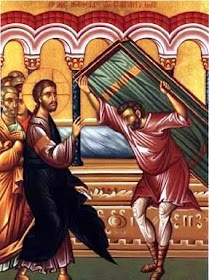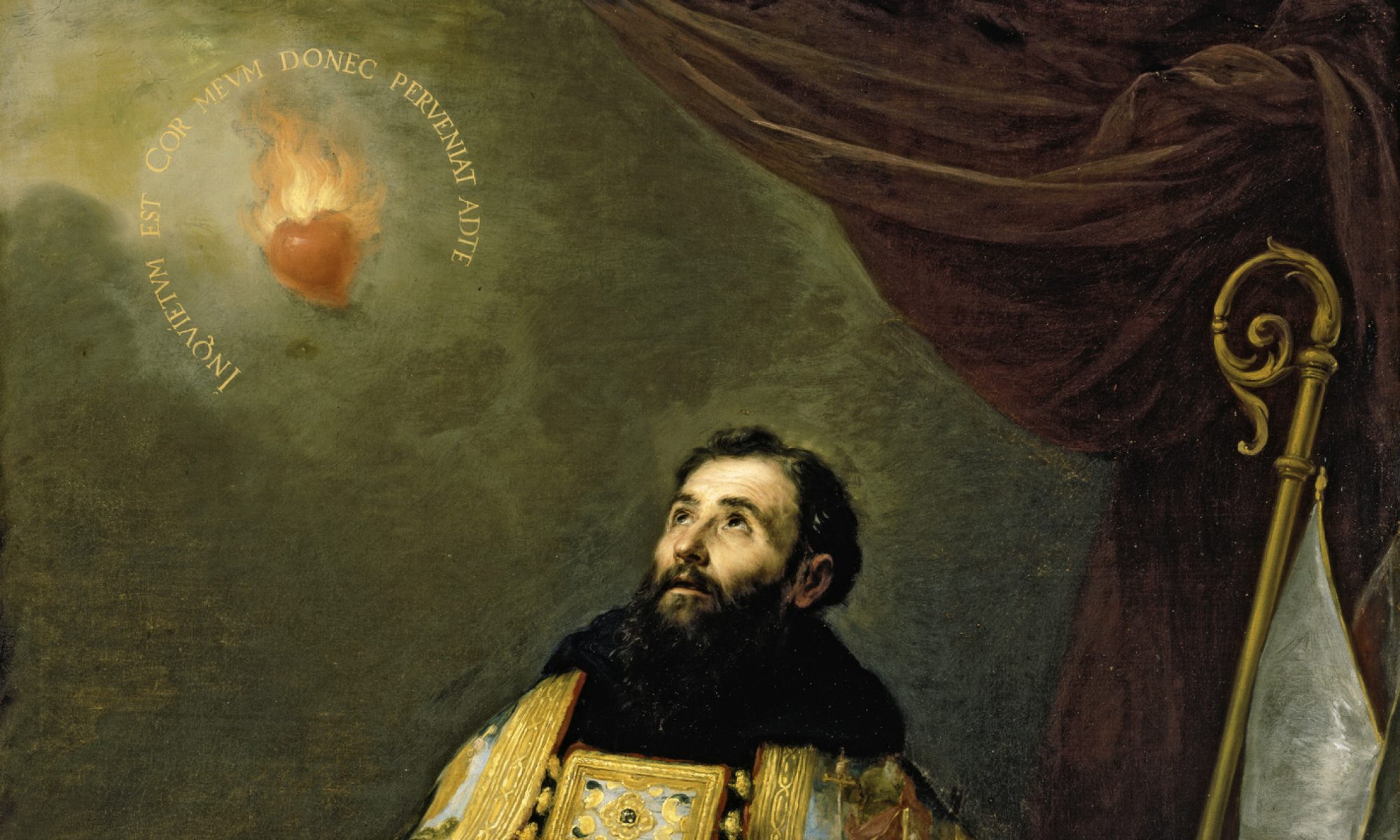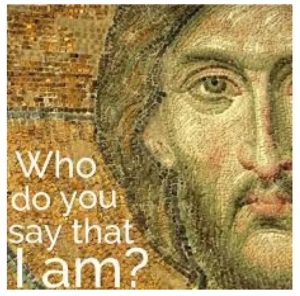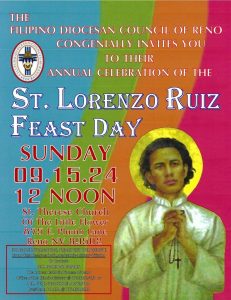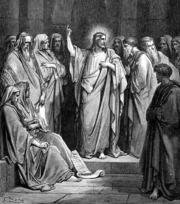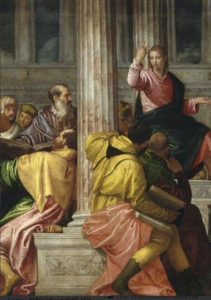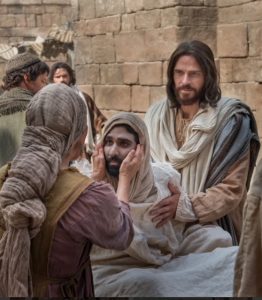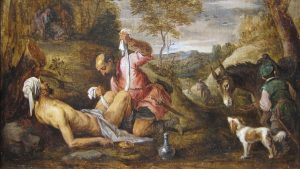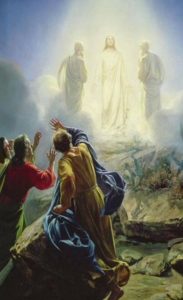Today is the 23rd Sunday in Ordinary Time. I believe that our Christian faith is not only to keep the moral truths and ethical norms but more importantly to establish a personal relationship with God. Hearing the Words from both the Old and New Testament, we are aware of the events which inspire us to live a decisive direction and encounter with God, who heals and saves. That encounter gives us comfort in knowing that God is always with us no matter what happens in our lives.
Today, let us reflect on the three readings to guide our understanding about this constant invitation to encounter this merciful God in faith and in all circumstances of life we are in which bring joy, healing, comfort and peace.
The first reading from the book of Isaiah speaks to us about the chosen people succumbing to discouragement and losing hope because they were still in captivity in Babylon. However, the prophet Isaiah reminds them that they are not alone in their journey; God walks with them. The Lord says to them, “Say to those frightened: Be strong, fear not!” When we encounter God’s presence thru listening to His mighty Words, there is that renewed freshness in our faith, because God comes “to save us.”
The second reading warns us not to treat people of lesser financial means in a lesser way. Our Christian relationship is not based on people’s financial status. St. James makes us aware that the Church must play no favoritism just as civil society treats people. In our modern society, we have the tendency to impress people with money because we know we can benefit from their power and influence. However, this doesn’t work in the Kingdom of God. For St. James, the practice of favoritism excludes and discourages others. What makes a difference between us, the Church and Society? I am afraid that we begin to treat the poor as society treats them, that is, poor people are being shamed, neglected and looked down upon. With this attitude, we are not of God but are evil and vicious. What God wants is not to take advantage of those with power but let them understand that we act with charity and justice to come to the aid of the poor. This passage from St. James is not something we should be conscious of only in our Church but in our lives as well. Let us not focus on something of greater value but of the eternal welfare and justice for everyone, which includes both the rich and the poor. How often do we treat others by way of looking at their external appearance and treating them well simply because of their wealth?
Psalm 145 tells us, “The Lord is just in all His ways;” thus, we too must live justly. To enter the kingdom of God, we will be judged not according to our wealth, but how much kindness and love we have done to others in following our Lord, Jesus Christ. After all, if Christ loves and embraces both the rich and the poor, should we not do the same?
The gospel today according to St. Mark reminds me of every baptism I administer. There is a part when the priest says, “Ephphatha,” which means, “Be opened.” Every time I utter the same word and touch the ears and mouth of an infant, the parents look at me as if murmuring deep inside themselves, “Let his mouth and eyes be opened but not all night; we need to sleep too.” This simple ritual reminds us of being open to the ways of God and to see beyond our selfishness and not to resist to speak the truth. Jesus came to touch and bless us that we may find comfort in being faithful followers.
There are three important guide points for our reflection:
First, early on that day people brought a deaf man to Jesus. It was thru friends that the deaf man was able to meet Jesus. He did not bring himself for healing. It is a good thing that happens when thru the good will of those people around us, like our community, they take a big step to extend help to us. It is amazing love that our friends are willing to get out from their comfort zone to bring us closer to Jesus.
I found it inspiring that healing occurs when others are willing to share our moments of pain and struggles. There are times that even strangers come to reach out to touch us. Such love and trust happens when this occurs that we meet and encounter good people. They are there to manifest God’s presence and healing. God becomes real to me, instead of just something I was taught to believe. Perhaps many of us have had a moment like this in our journey of faith.
Second, Jesus takes the deaf man away from the crowd so He can be with him alone. Maybe this is Jesus’ gesture of knowing well and caring for his personal needs. Jesus takes us in solitude and in prayer for us to have the chance to experience being with God, similar to the actions of Jesus with the deaf man in today’s gospel.
Being with Jesus in prayer, we can feel deeply our deafness, then gradually hearing that to which Jesus asks us to listen. Jesus does this frequently to us, as if in silence He is absent; however, in truth, God speaks to us in the silence of our hearts. Quiet listening implies change, which is a challenge for us to aim to be a better person and to discover who we really are.
Third, Jesus orders the crowd not to tell anyone what they saw there. The reason why He prohibits media mileage is because He wills these miracle works, not for the spectacle of them, but rather to impact the personal life of the healed man and those who have witnessed the miracle. The healed man has been restored to be an active member of the community. He was invited to integrate with his family and community. Jesus prays, “Be open” meaning the total restoration of both the physical and interior life of the person. His hearing and speaking improved perfectly, and Jesus offered him the option of faith through his commitment to do his ministry to announce and to share the good news!
Through this Eucharistic celebration, we pray that our encounter with God is a source of comfort in our total healing, growing and maturing.
God bless you.
Fr. Arlon, osa
————–
El Dictado del Corazón
Vigésimo-Tercer Domingo del Tiempo Ordinario, Año B
- Isaías 35:4-7a
- Salmo 146:6-7, 8-9, 9-10
- Santiago 2:1-5
- Marcos 7:31-37
Hoy es el Vigésimo-Tercer Domingo del Tiempo Ordinario. Nuestra fe cristiana no se limita únicamente a respetar normas morales y éticas. Lo más importante es establecer una relación personal con Dios. Al escuchar las Palabras tanto del Antiguo y Nuevo Testamento, somos conscientes de los acontecimientos que nos inspiran a vivir en una dirección decisiva y a encontrarnos con Dios, que sana y salva. Ese encuentro nos da el consuelo de saber que Dios está siempre con nosotros, sin importar lo que suceda en nuestra vida.
Ahora, reflexionemos sobre las tres lecturas para guiar nuestro entendimiento sobre esta constante invitación al encuentro con este Dios misericordioso. Con fe y en todas las circunstancias de la vida en las que nos trae alegría, sanacion, consuelo y paz.
La primera lectura del libro de Isaías nos habla del pueblo elegido que sucumbe al desánimo y pierde la esperanza porque todavía estaban cautivos en Babilonia. Sin embargo, el profeta Isaías les recuerda que no están solos en su camino, Dios camina con ellos. El Señor les dice: “Digan a los que tienen miedo: ¡Sean fuertes, no temán!”. Cuando encontramos la presencia de Dios al escuchar sus poderosas Palabras, hay esa frescura renovada en nuestra fe, porque Dios viene “a salvarnos”.
La segunda lectura nos advierte que no tratemos a las personas con menos recursos económicos de una manera inferior. Nuestra relación cristiana no se basa en el estado financiero de las personas. Santiago nos hace conscientes de que la Iglesia no debe hacer favoritismo, sino solo lo que la sociedad civil trata a las personas. En nuestra sociedad moderna, tendemos a impresionar a las personas con dinero porque sabemos que nos beneficiamos de su poder e influencia. Sin embargo, esto no funciona en el Reino de Dios. Para Santiago, la práctica del favoritismo excluye y desalienta a los demás. ¿Qué hace la diferencia entre nosotros, la Iglesia y la sociedad? Me temo que empezamos a tratar a los pobres como los trata la sociedad, es decir, los pobres están siendo avergonzados, desatendidos y menospreciados. Con esta actitud, no somos de Dios, sino que somos malvados y viciosos. Lo que Dios quiere no es aprovecharse de los que tienen el poder, sino hacerles entender que actuamos con caridad y justicia para ayudar a los pobres. Este pasaje de Santiago no es solo de lo que debamos ser conscientes en nuestra Iglesia, sino también en nuestra vida. No nos centremos en algo de mayor valor, que es el bienestar eterno y la justicia para todos, que incluye tanto a los ricos como a los pobres. ¿Con qué frecuencia tratamos a los demás por su apariencia externa, tratándolos bien simplemente por su riqueza?
En el Salmo ciento-cuarenta-y-cinco, “El Señor es justo en todos sus caminos”, por lo tanto, también nosotros debemos vivir con justicia. Para entrar en el reino de Dios, seremos juzgados no según nuestras riquezas, sino por cuánta bondad y amor hayamos hecho a los demás al seguir a nuestro Señor, Jesucristo. Después de todo, si Cristo ama y abraza tanto a los ricos como a los pobres, ¿no deberíamos hacer lo mismo nosotros?
El evangelio de hoy según San Marcos me recuerda cada bautismo que administro. Hay una parte en la que el sacerdote dice: “Ephphatha”, que significa “Ábrete”. Cada vez que pronuncio la misma palabra y toco los oídos y la boca de un infante, los padres me miran como si murmuraran en lo más profundo de ellos: “Que se le abran la boca y los ojos, pero no toda la noche, también necesitamos dormir”. Este sencillo ritual nos recuerda que debemos estar abiertos a los caminos de Dios, ver más allá de nuestro egoísmo y no resistirnos a decir la verdad. Jesús vino a tocarnos y bendecirnos para que podamos encontrar consuelo en ser seguidores fieles.
Hay tres puntos importantes para reflexiónar:
Primero, temprano ese día, la gente trajo a un hombre sordo a Jesús. Fue a través de amigos que el hombre sordo pudo conocer a Jesús, no se trajo a sí mismo para sanar. Es bueno que la buena voluntad de las personas que nos rodean, como nuestra comunidad, dé un paso más para ayudarnos. Es un amor asombroso que nuestros amigos estén dispuestos a salir de su zona de confort para acercarnos a Jesús.
Me pareció inspirador que la sanación ocurra cuando otros están dispuestos a compartir nuestros momentos de dolor y luchas. Hay momentos en que incluso extraños vienen a tocarnos. ¿Qué amor y confianza surgen cuando esto ocurre para conocer y encontrarse con buenas personas? Están allí para manifestar la presencia y la sanación de Dios. Dios se vuelve real para mí, en lugar de ser solo algo que me enseñaron a creer. Quizás muchos de nosotros tenemos este momento como en nuestros viajes de fe.
En segundo lugar, Jesús aleja al sordo de la multitud para poder estar a solas con él. Quizás este sea el gesto de Jesús de conocer bien y cuidar de sus necesidades personales. Jesús nos lleva en soledad, en oración para que tengamos la oportunidad de experimentar estar con Dios, acciones similares a las que Jesús hizo con el hombre sordo en el evangelio de hoy.
Al estar con Jesús en oración, podemos sentir profundamente nuestra sordera, para luego revivir gradualmente nuestra audición a la que Jesús nos pide que escuchemos. Jesús nos hizo esto con frecuencia, como si en silencio, Él estuviera ausente, sin embargo, en verdad, Dios nos habla en el silencio de nuestro corazone. Escuchar en silencio implica un cambio, lo cual es un desafío para apuntarnos a ser mejores personas y descubrir quiénes somos.
En tercer lugar, Jesús ordena a la multitud que no le cuente a nadie lo que vieron allí. La razón por la que prohíbe el uso de los medios es porque quiere que este milagro no funcione por el espectáculo sino para impactar la vida personal del hombre sanado y de aquellos que han presenciado el milagro. El hombre sanado ha sido restaurado para ser un miembro activo de la comunidad. Fue invitado a integrarse a su familia y comunidad. Jesús ora: “Sé abierto”, lo que significa la restauración total tanto de la vida física como interior de la persona. Su audición y habla mejoraron perfectamente y Jesús le ofreció la opción de la fe a través de su compromiso de hacer su ministerio de anunciar y compartir la buena nueva.
Que en esta celebración eucarística, oremos para que nuestro encuentro con Dios sea una fuente de consuelo en nuestra sanación total, crecimiento y madurez.
Dios los bendiga,
Padre Arlon, osa

